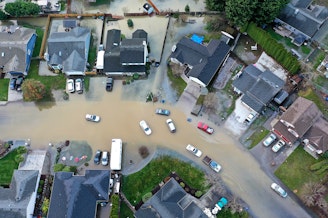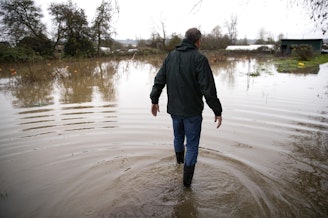Sharing 'a life-sustaining energy,' exploring Seward Park with naturalist Ed Dominguez
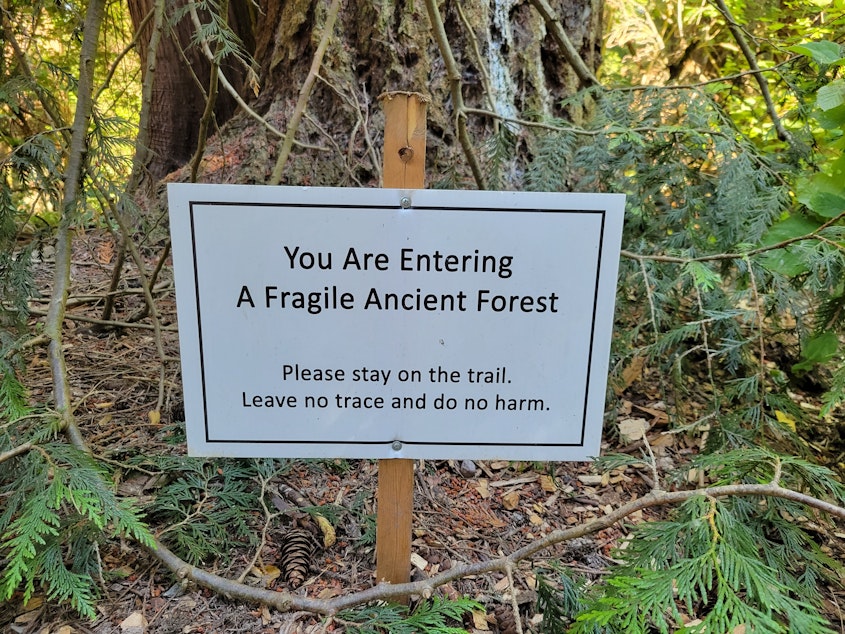
Since 2011, Ed Dominguez has been working at Seward Park's Audubon Environmental Learning Center in one capacity or another, and has been the lead naturalist since 2018.
After a pandemic-induced yearlong hiatus, the center is back open, and Dominguez is leading groups of budding birders and long-time nature lovers through the park.
Seward Park is a peninsula with 277 acres of old-growth forest, nestled between Beacon Hill to the east and Mercer Island to the west. It also houses an amazing variety of wildlife, including birds of all types, small animals, coyotes, and an abundance of plant life.
Dominguez has been leading groups of people through the park for years. Soundside took advantage of the Saturday morning "Early Bird" session, looking for the young barred owls that have taken up residence just behind the center, and the four Cooper's hawks that live in the middle of the park.
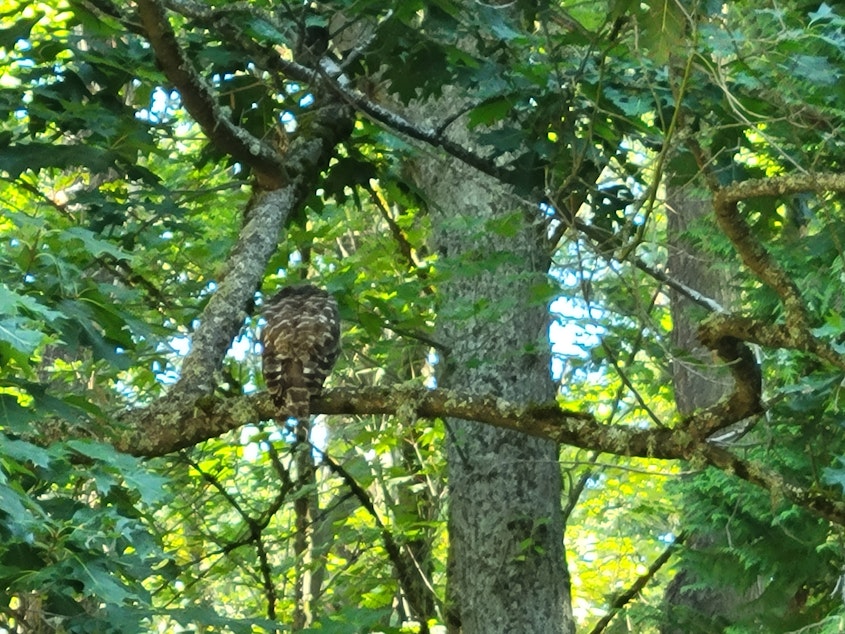
Sponsored
"Our main mission statement is to bring people in this area into Seward Park and show them all about the incredible natural world that's right here in their neighborhood," Ed said. "And so I lead all the adult programs which include birding programs, Owl Prowls, Bat Treks, native-plant walks, trees, berries, wildflowers, geology, aquatic plants, anything in the natural world."
Dominguez said one of the things that makes Seward Park special is its variety of habitats.
"Many people come and walk around the two and a half mile lakeshore trail," he said. "You've got a wonderful lakeside habitat that's got all kinds of aquatic plants, emergent plants, trees that like to grow near water, and all of the water birds."
He said another unique aspect of the peninsula is its old-growth forests.
"Because, of all the patches of old growth that still remain in the Puget Sound metropolitan area, this is the only one that has never been logged," Dominguez said. "So, it's very unique in that respect."
Sponsored
Dominguez said the pandemic reinforced something that he's been studying about the natural world — the five major extinction events in Earth's history.
"And in each of those events, the animals that survived were the animals that were best able to adapt," he said. "So that was the main lesson I learned: Change can happen in to our to our world at any moment, and you have to be adaptable to flex and change to accommodate that if you want to survive."
Dominguez said he believes everyone should be able to get out and enjoy nature, no matter who you are.
"What we want is to be all-inclusive," he said. "So we want to make sure that everyone is welcome to come, no matter what your ethnicity, no matter what your socio-economic background. And so I think anything that broadens that welcoming to all peoples to come in is a positive move. It's an integral part of our centers to connect with ethnicities and get them out in nature and show them it can be a safe and we're rewarding experience."
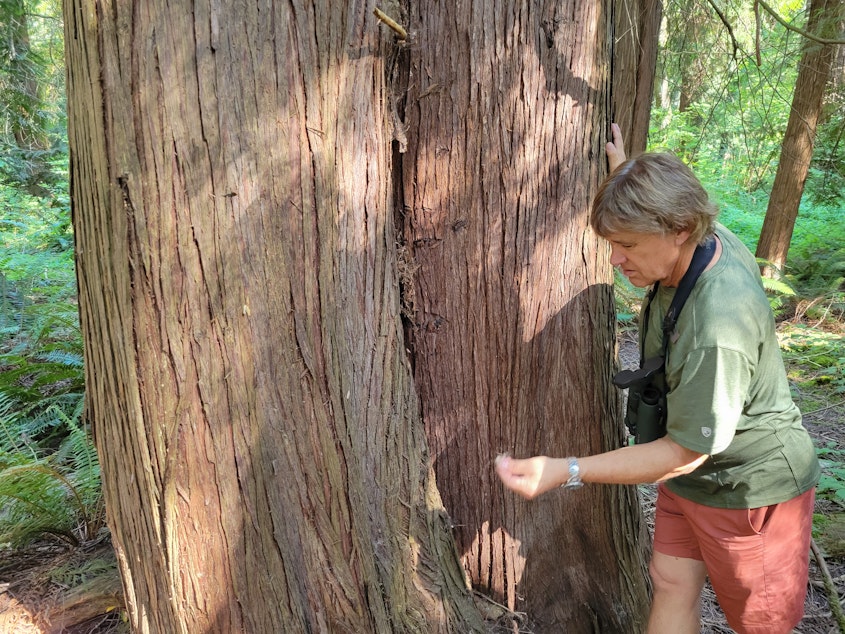
Sponsored
And what about birding apps on your smart phone? Do those make you lazy?
"No, they don't make you lazy. They make things far less cumbersome," he said. "When I was growing up learning about bird songs and calls, you had vinyl LP records that you had to drop the needle on. Technology has made learning more fun, less cumbersome, and more accessible. It's great. I wished I had that when I was a kid."
Dominguez said the part of his job he finds incredibly rewarding and gratifying is seeing the connection people make when they discover something themselves in nature.
"Every time I take a group out, it's always that same freshness and excitement," he said. "When I connect people with that, it strikes a chord of resonance inside me, that gives me that feeling. So I keep wanting to do it over and over and seeing those people connect. It never gets old. It's always it's always just a life-sustaining energy that I'm happy to share with people."



